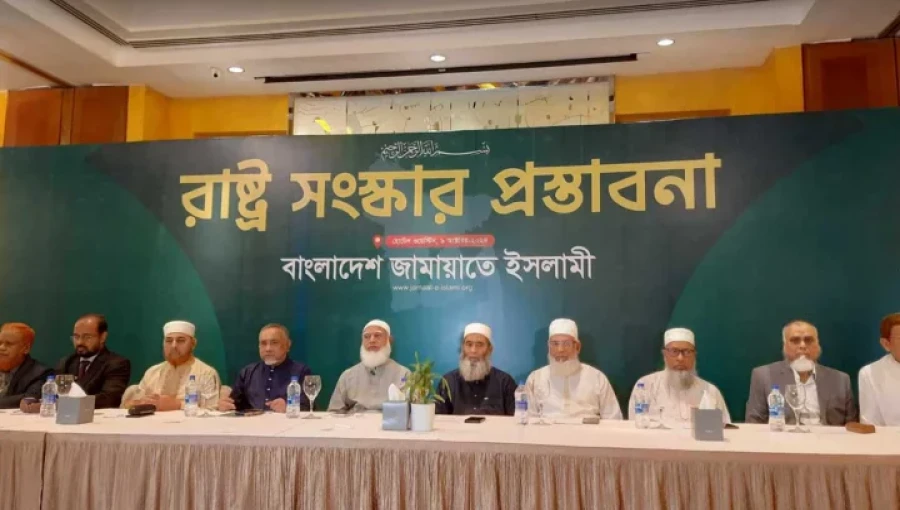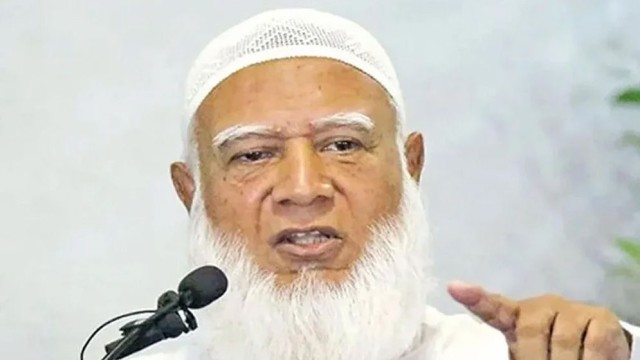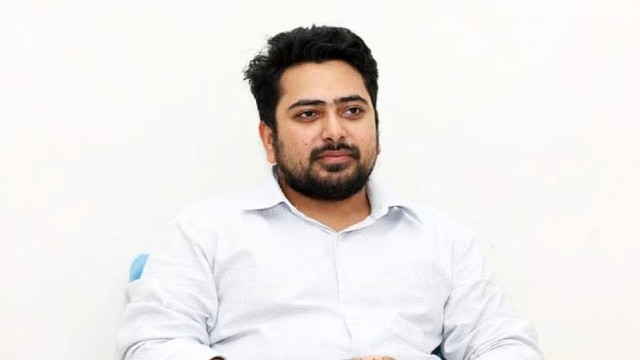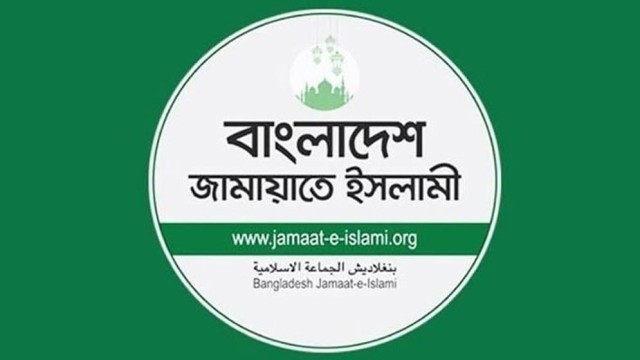Dhaka, Oct 09 (V7N) — Bangladesh Jamaat-e-Islami has introduced a proposal outlining state reforms across 10 critical sectors , including election system, judiciary, law enforcement, foreign affairs, parliament, employment, education, and entertainment . According to the party, these reforms are essential for addressing the challenges faced by the country. However, they emphasized that these proposals are meant for an interim government , not an elected one.
The proposal, presented by Jamaat Nayeb Amir Dr. Syed Abdullah Muhammad Taher on Wednesday afternoon, included a total of 41 reform suggestions , with 10 of the most significant recommendations aimed at the interim administration.
Election System Reform : Jamaat calls for comprehensive reforms before the next national parliamentary elections, arguing that without fundamental changes, elections will remain meaningless. The party demands the repeal of all "black laws," including the Digital Security Act . The caretaker government system should be permanently reintroduced, and Electronic Voting Machines (EVMs) should be abolished to ensure fair elections.
Limit on Prime Ministerial Terms : The party proposed that no individual should serve as prime minister for more than two consecutive terms , aiming to bring fresh leadership to the country's political landscape.
Job and Retirement Reforms : Jamaat has proposed raising the age limit for government job applications to 35 years for the next two years , and 33 years permanently thereafter . They also suggest increasing the retirement age to 62 years .
Judiciary Reform : To ensure an independent judiciary, Jamaat has called for the separation of the judiciary from the executive . They suggest amending laws where necessary to strengthen judicial independence.
Parliamentary Reforms : The party proposes appointing a deputy speaker from the opposition to maintain balance and representation in parliament.
Law and Order Reform : Jamaat has advocated for the abolition of the British-era police law and eliminating political interference in police recruitment . They recommend that religious education be included in police training and that no weapons be provided to police officers.
Reforming RAB : The party suggested that those who have served in the Rapid Action Battalion (RAB) for the past 15 years should not be brought back into service. Additionally, reforms are needed to restore public confidence in the force.
These proposed reforms come at a time when discussions around election integrity and governance reforms have gained momentum. Jamaat-e-Islami insists that the caretaker system of government should be reinstated to oversee elections, a stance shared by other opposition parties.
Dr. Syed Abdullah Muhammad Taher stressed that fundamental reforms are necessary to regain public trust and ensure a fair and transparent election process. He emphasized that the current political environment and electoral framework require restructuring for the country to move forward.
The reform proposals have sparked debate, with different political factions offering varying perspectives on the viability and implications of Jamaat-e-Islami’s suggestions. The discussion around the Digital Security Act , in particular, continues to be a point of contention among opposition parties and civil society groups.
These developments mark a significant moment in Bangladesh’s political discourse as the country prepares for its next elections, with various stakeholders calling for wide-ranging reforms to address existing issues in governance and law enforcement.
END/MSS/AJ




























Comment: